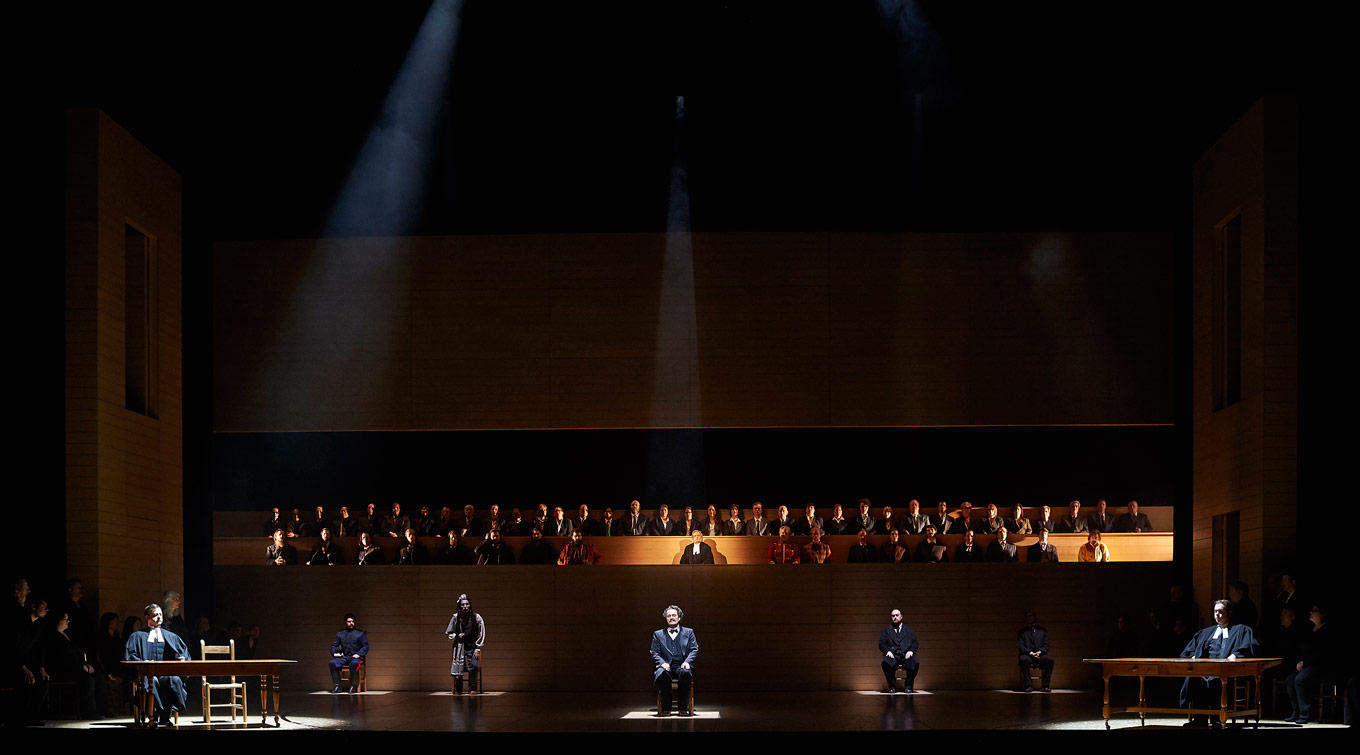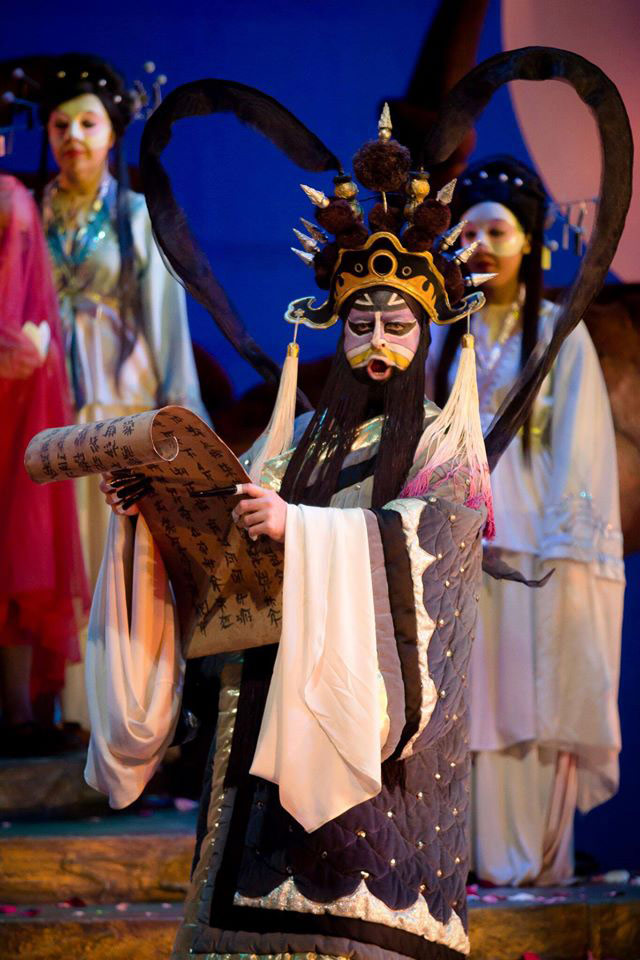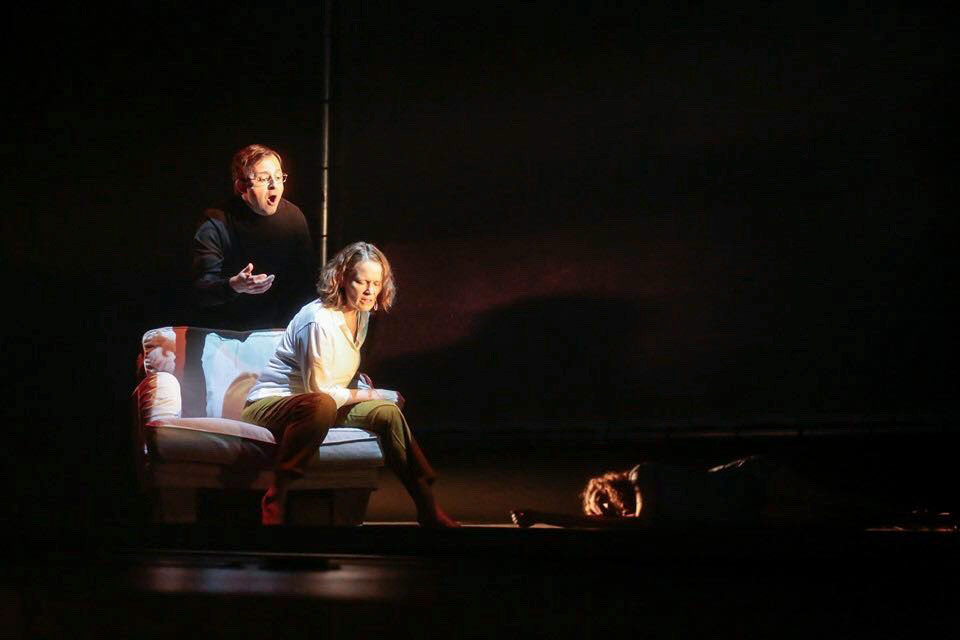
Spotlight on: Dion Mazerolle
InterviewFrom Dulcamara (L’elisir d’amore) to the Four Villains (Les contes d’Hoffmann) to the title role in Salieri’s Falstaff, New Brunswick-born baritone Dion Mazerolle is as versatile as he is busy. He just finished the Toronto run of Peter Hinton’s new production of Louis Riel, and this summer he reprises his role of F.X. Lemieux for additional performances at Ottawa’s National Arts Centre and at Opéra de Québec.
Mazerolle took the time to chat about everything from being a respectful and reliable understudy, to his musical roots in Acadian “jam sessions”.
Why do you sing, and why are you doing it professionally?
My parents grew up in very big Acadian families in New Brunswick. Together they had 19 siblings. During family get togethers for holidays or summer vacations, we always had big parties. Music was always a big part of these occasions. If I wasn’t causing havoc with my 40 or so cousins, I was probably harmonizing with my older aunts and uncles to Bluegrass or country music or singing to the rock classics of the 70s with my younger uncles.
These amazing jam sessions left a lasting impression on me as a child. I sing because it’s part of who I am. I do it professionally because a good part of the work we do as singers, we do it with others; it is collaboration where everyone has their part to play.

What does “good singing” mean to you? What does it feel like when you achieve it?
Good singing for me means communicating. In and after school, we learn how to sing, breathe, how to create legato, vocal colour, control of sound, pronunciation but we do all this toward the ultimate goal of communicating something to our audience. Whether it is from opera, recital or oratorio, we are here to tell a story. When you achieve it, you feel like you have a purpose.

What do young singers need to do more of? What should they do less of?
I remember a Q & A session after a weekend of masterclasses with famous collaborative pianist Dalton Baldwin a few years ago. One of last things he said to the group was: “If you want to have a career singing professionally, be sure to live your life with passion. Passion not just for singing. Find things you love besides singing.”
I think young singers should do less of looking at their career with blinders on. We need to be as versatile a singer as possible.
What is it like to work as an understudy for a large role, at a major opera company? What sort of etiquette do you find is important for cover work?
Understudying a large role in a major company is very exciting. This is my first time having this experience. I am lucky enough to be understudying someone that I have known and admired for a number of years. As for etiquette, I did communicate with Alain [Coulombe] that I would be understudying his role [in Louis Riel]. I also did ask if he was comfortable if I were to listen into any coaching he might be having.
Every artist’s level of comfort is different when it comes to our personal method of working out the kinks in a role. I think respect and support is very important when we work together.

Do you have any “bucket list” roles you’d like to sing (realistically or otherwise)?
I would love to sing some more Mozart. Don Giovanni (Don Giovanni) and Count (Le nozze di Figaro). I would love to reprise Golaud (Pelléas et Mélisande) which I sang a number of years ago. In some of the more dramatic roles, I would love to one day sing Scarpia (Tosca), Iago (Otello), Tonio (Pagliacci), Blitch (Susannah).
Louis Riel runs in Ottawa June 15-17, and in Québec July 30-August 1. For more with Dion Mazerolle, follow him on Facebook.

Comments